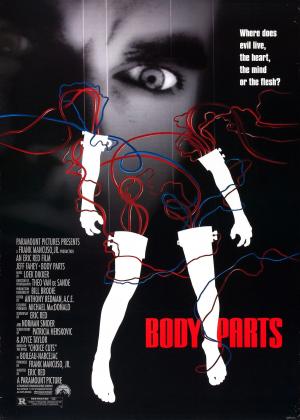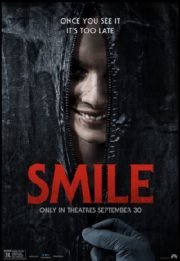
Submit your review | |
"Body Parts" (1991), directed by Eric Red, is a psychological horror thriller that explores the macabre consequences of a groundbreaking medical experiment. While the film presents an intriguing premise and has its moments of suspense, it ultimately falls short due to uneven execution and missed opportunities.
The story centers around Bill Chrushank (Jeff Fahey), a criminal psychologist who loses his arm in a car accident. He undergoes a revolutionary transplant surgery, receiving a donor arm. However, soon after the procedure, he experiences disturbing and violent impulses that lead him to uncover a sinister secret behind the source of the donor limb.
One of the strengths of "Body Parts" lies in its initial setup, which presents an intriguing premise that blends medical science, body horror, and psychological thriller elements. The exploration of identity, free will, and the ethics of transplantation surgery adds depth to the narrative. Jeff Fahey delivers a solid performance as the troubled protagonist, capturing his growing paranoia and desperation effectively.
The film also features some well-crafted suspense sequences and grisly practical effects. The scenes depicting the protagonist's struggle with his new arm and the violent urges it triggers are the highlights of the film. These moments generate genuine tension and provide some chilling and memorable visuals.
However, despite its potential, "Body Parts" struggles with inconsistent pacing and tonal shifts. The film meanders at times, losing momentum and failing to maintain a consistent level of suspense. The script also leaves some narrative threads underdeveloped, resulting in missed opportunities for deeper exploration of the psychological and philosophical themes introduced.
Additionally, some of the supporting characters and their relationships with the protagonist feel underdeveloped or lack depth. This diminishes the impact of certain plot twists and reduces the overall emotional investment in the story.
Furthermore, the film's climax and resolution may leave viewers wanting more. The conclusion feels rushed and lacks the satisfying payoff that the setup promised. It wraps up the story too neatly, missing an opportunity to delve further into the moral and psychological implications of the protagonist's journey.
Despite its flaws, "Body Parts" retains a certain cult appeal for fans of '90s horror films. The film's mix of body horror, psychological thrills, and practical effects may still provide some entertainment value for viewers who enjoy this particular subgenre. However, for those seeking a more cohesive and satisfying cinematic experience, "Body Parts" may not fully deliver on its intriguing premise.
In conclusion, "Body Parts" presents an intriguing premise that combines elements of horror, psychology, and medical ethics. While the film has its moments of suspense and delivers some effective practical effects, it suffers from inconsistent pacing, underdeveloped characters, and a rushed resolution. Despite its cult appeal, "Body Parts" falls short of realizing its full potential as a memorable and impactful psychological horror thriller.
























